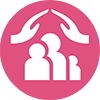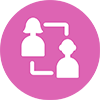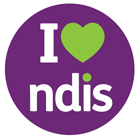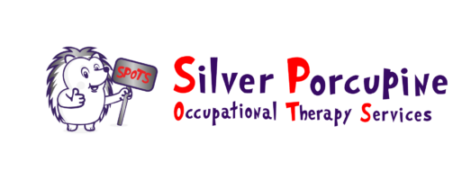Our Occupational Therapists work hard to ensure your goals are targeted to suit your needs and requirements through a holistic approach. Although we work predominantly with children from 0-18, our services will support your needs no matter what age, condition, disability. We can support you within your home, workplace or community setting.
Occupational Therapy Services
At SPOTS we make every effort to help you reach your goals
Every adult, child and family are unique and require different options to support individual needs. At SPOTS, we provide occupational therapy services to best fit your circumstances to achieve your goals.

An initial consultation will be conducted to determine how we can best support your needs and requirements. An ongoing plan will then be created to ascertain how we can best support your needs and can also offer:

Initial Consultation
We will conduct an initial consultation with you to discuss your needs and if occupational therapy is the right choice for your goal directed therapy.

Assessments
Initial assessments, review assessments, and comprehensive reports to gain a greater understanding of need and ability.

Individual Therapy
Individualised, goal directed intervention sessions conducted at a location of your choice – home, school, early childhood setting or community-based setting.

Home Visits
We can offer therapy within your home as a family-centred approach and can tailor visits to include individual therapy, sibling therapy, as well as parent coaching sessions to provide you with the skills to continue therapy with your child to reach your desired goals.

Group Therapy
Group Therapy is available to assist your child to learn skills associated with their goals in a social setting to promote greater opportunities for learning and collaborating with peers. Our group therapy services can include holiday programs, social skills, school readiness, puberty and a range of other options.

School Visits
We will work closely with your child’s educators within early childhood or school-based settings to ensure your child has strategies in place to cope with the demands of education. Therapy options within educational environments can be classroom/individual and peer based social sessions.

Collaborative Approach
SPOTS adopt a collaborative approach to supporting you or your child and family. Our services work closely with other professionals including speech pathologists, teachers, early childhood educators, paediatricians, GP’s, psychologists, physiotherapists, social workers and coordination of supports providers.

Telehealth
During times when you just can’t make face-to-face visits, or when lockdown restrictions are in place, we can offer telehealth sessions to ensure continuity of therapy to assist you to reach your goals.

School Screeners
At SPOTS we are dedicated to ensure all children have the opportunity to achieve their goals regardless of their ability. We can offer school and early childhood centre screening to identify concerns that may impact a child’s ability to reach their potential in the school setting or in preparation for school so early intervention can be provided to ensure greater success for learning.

Workshops
We can provide parent and teacher workshops to assist with strategies across a range of areas that may benefit children within the home or classroom. Topics can include self-regulation, sensory processing and fine motor skills to name a few.
Child and Young People Therapy
Individualised Therapy to Suit the Uniqueness of Your Child
We believe that all children are unique and deserve a treatment plan that is specific to their individual needs using fun and play to facilitate function and promote more appropriate adaptive responses and improve the child’s ability.
We provide services for children with Autism, developmental delays, attention difficulties such as ADHD, neurological conditions, intellectual and physical disability, mental health conditions, motor skill difficulties.
At SPOTS we work alongside your family to help your child succeed across all activities of daily living including:

Gross Motor Difficulties
Gross Motor – Difficulty maintaining balance, negotiating around play equipment, difficulty coordinating body movements such as jumping, hopping, skipping, avoids physical activity.
Postural Control – frequent fidgeting and re-adjusting the body when sitting, slouches or lays to complete activities, props head on hand when sitting, props body against people or objects, poor endurance, poor balance, relies on handrails when climbing stairs

Fine Motor Difficulties
Fine Motor – Difficulty manipulating small objects such as beads or coins, weakness in hands/fingers, difficulty opening common items such as food packages, has confusion with hand dominance
Handwriting – Difficulty or awkwardness grasping pencil/crayons/markers, weakness in hands/fingers, swapping hands, difficulty with letter formation, letter placement and spacing.
Visual Motor Skills– Difficulty coordinating hand movements, copying shapes, cutting on a line, or writing and drawing.
Visual Perceptual Skills – Difficulty with locating objects in a busy background, matching similar objects, discriminating between objects, copying when writing or drawing, completing puzzles, labelling letters, numbers or shapes.

Regulation Issues
Emotional Regulation – Difficulty identifying and understanding emotions, becomes easily frustrated or emotional, unable to transition between activities, difficulty making and maintaining friendships, has limited self-confidence.
Sensory Processing – Difficulty processing incoming sensory information including under or over responsiveness to auditory, touch, smell, taste, visual, balance and movement stimuli.
Attentional Difficulties – Difficulty attending to set tasks or completing tasks. Frequent fleeting between activities and inability to sit still for extended periods of time.

Self-Care Skills
Toileting – Difficulty toileting in a timely manner, difficulty comprehending sensation to toilet, hiding, smearing and behavioural issues associated with toileting.
Hygiene – Limited ability to bathe independently, difficulty brushing teeth, brushing hair, and maintaining cleanliness throughout the day.
Dressing – Difficulty dressing and undressing, manipulating clothing fasteners such as zippers, buttons and tying shoelaces, unable to independently bathe or maintain hygiene, difficulty using utensils and opening food packaging

Other Daily Living Skills
Sleeping – Difficulty getting to sleep and maintaining good sleep patterns, night waking, waking early.
Fussy Eating – Difficulty sitting at the table, eating in a timely manner, behavioural challenges, or sensory problems associated with textures, taste, temperature and consistency.
Play skills – Difficulties interacting with peers, turn taking, following rules, losing, difficulty joining in or initiating play.
School Transition – Difficulty transitioning from early childhood settings or home setting to school, difficulty following routines and engaging in co-operative play.
Funding Options
Empowering Independence 4 All!

National Disability Insurance Scheme (NDIS)
SPOTS are a registered NDIS provider and can provide services and support for people registered though the NDIS.
For more information on the NDIS can be located here ndis.gov.au

Medicare
Medicare rebates are available based on eligibility and will incur a gap fee. Please contact us for our provider number.
Private Services
We also provide private Occupational Therapy services. You may be entitled to rebates from your private health insurance provider depending on your level of cover.



